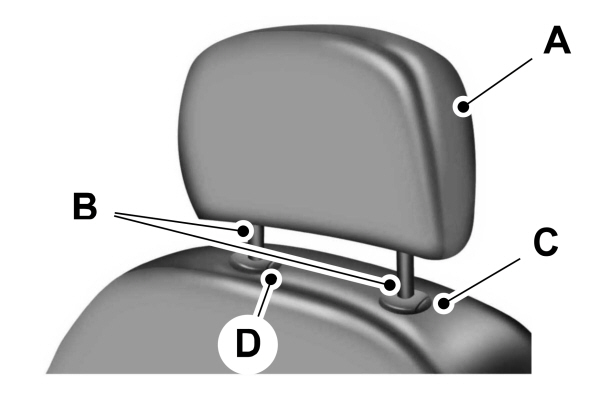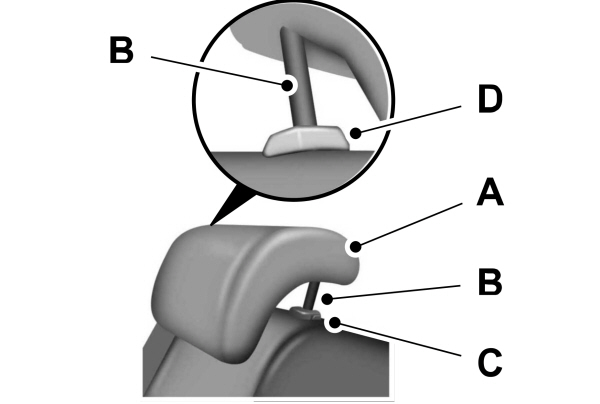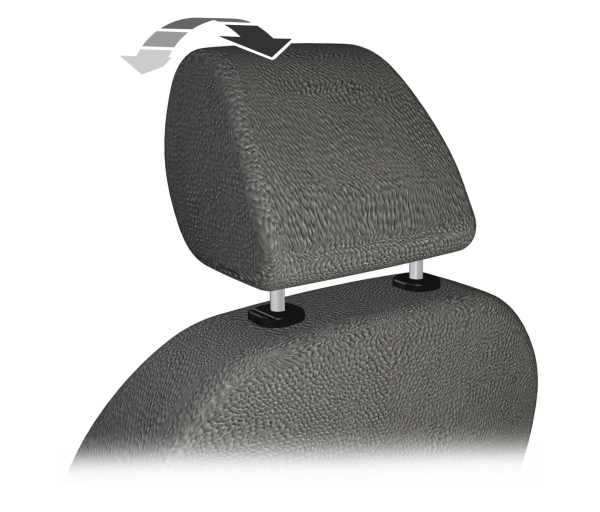This view of the Owner's Manual contains the very latest information, which may vary slightly from the printed Owner's Manual originally provided with your vehicle. It may also describe content that is not on or operates differently on your vehicle. Please consider the Owner's Manual originally provided with your vehicle as the primary source of information for your vehicle.

The information contained in this publication was correct at the time of release.In the interest of continuous development, we reserve the right to change specifications, design or equipment at any time without notice or obligation.No part of this publication may be reproduced, transmitted, stored in a retrieval system or translated into any language in any form by any means without our written permission.Errors and omissions excepted.
Copyright © 2024 Ford Motor Company
Head Restraints



 WARNING:
Fully adjust the head restraint before you sit in or operate your vehicle. This will help minimize the risk of neck injury in the event of a crash. Do not adjust the head restraint when your vehicle is moving.
WARNING:
Fully adjust the head restraint before you sit in or operate your vehicle. This will help minimize the risk of neck injury in the event of a crash. Do not adjust the head restraint when your vehicle is moving. WARNING:
The head restraint is a safety device. Whenever possible it should be installed and properly adjusted when the seat is occupied.
WARNING:
The head restraint is a safety device. Whenever possible it should be installed and properly adjusted when the seat is occupied. WARNING:
Install the head restraint properly to help minimize the risk of neck injury in the event of a crash.
WARNING:
Install the head restraint properly to help minimize the risk of neck injury in the event of a crash. |
Note:
Adjust the seatback to an upright driving position before adjusting the head restraint. Adjust the head restraint so that the top of it is level with the top of your head and as far forward as possible. Make sure that you remain comfortable. If you are extremely tall, adjust the head restraint to its highest position.
Front seat head restraints

Rear seat outboard and center head restraints

The head restraints consist of: AB C D |
Adjusting the Head Restraint
Raising the Head Restraint
Pull the head restraint up.
Lowering the Head Restraint
- Press and hold button C.
- Push the head restraint down.
Removing the Head Restraint
- Pull the head restraint up until it reaches its highest position.
- Press and hold buttons C and D.
- Pull the head restraint up.
Installing the Head Restraint
Align the steel stems into the guide sleeves and push the head restraint down until in locks.
Tilting Head Restraints (If Equipped)
The front head restraints tilt for extra comfort. To tilt the head restraint, do the following:

- Adjust the seatback to an upright driving or riding position.
- Pivot the head restraint forward toward your head to the desired position.
After the head restraint reaches the forward-most tilt position, pivoting it forward again will then release it to the rearward, un-tilted position.
